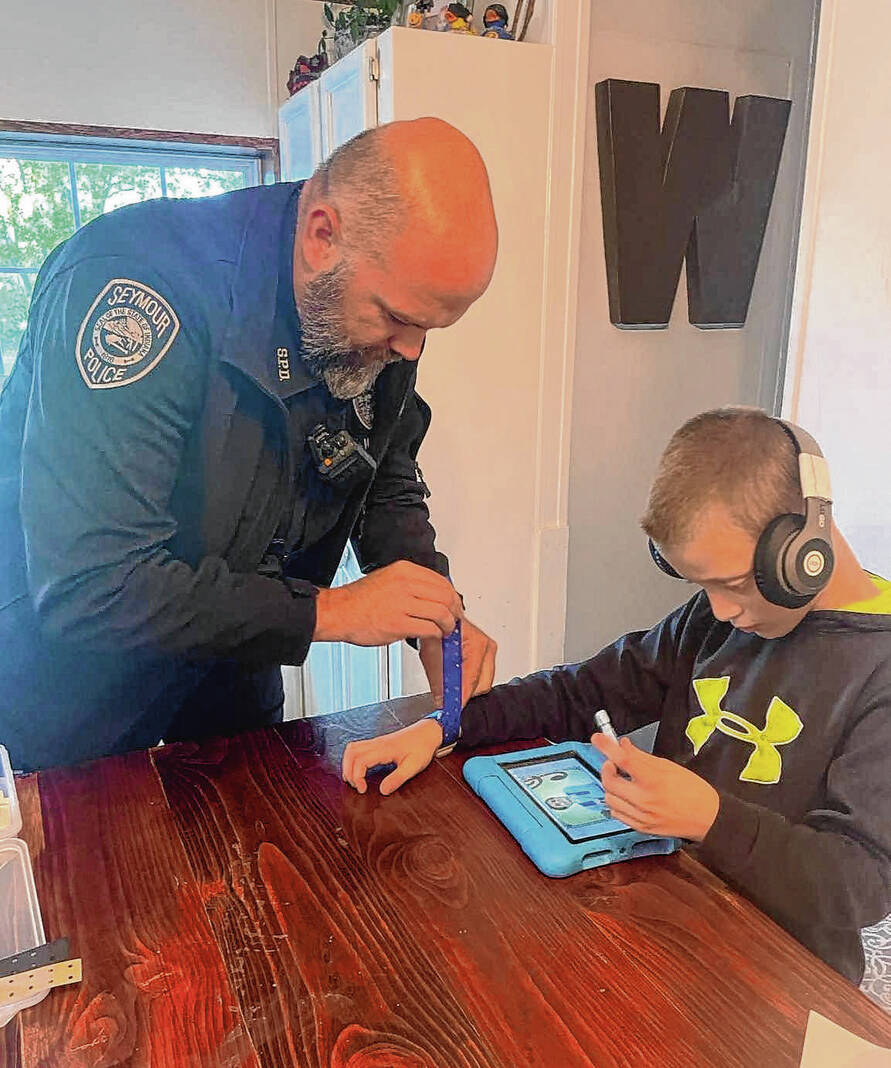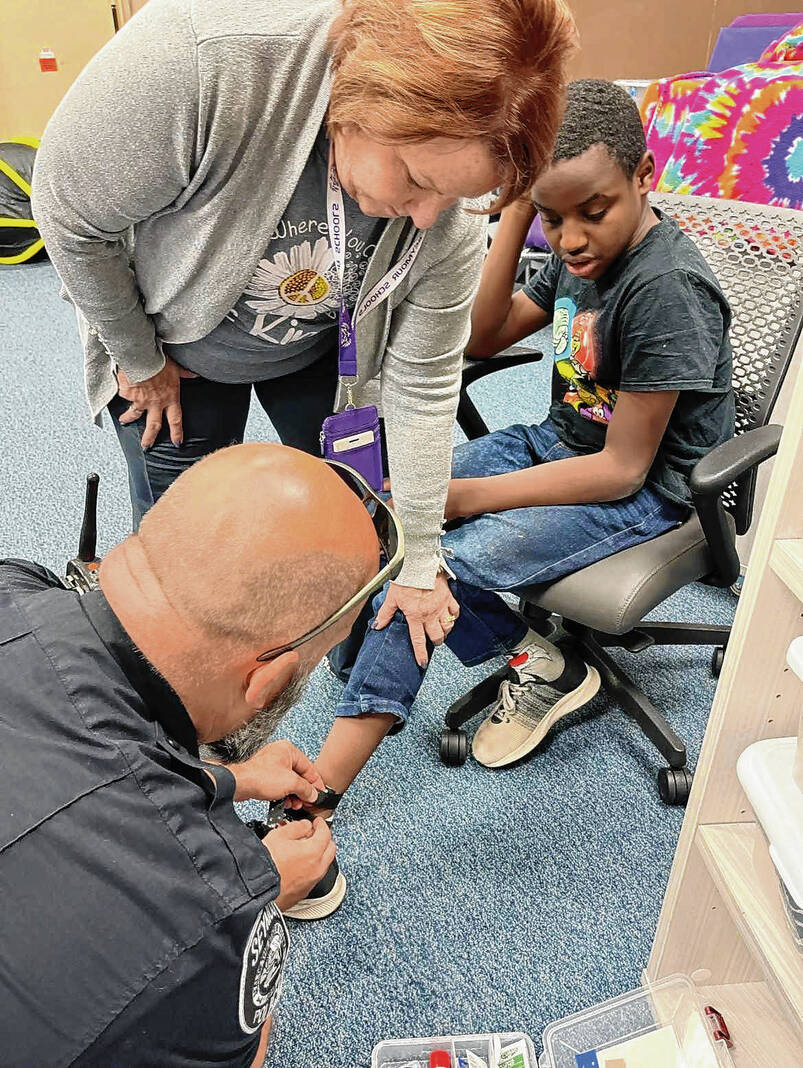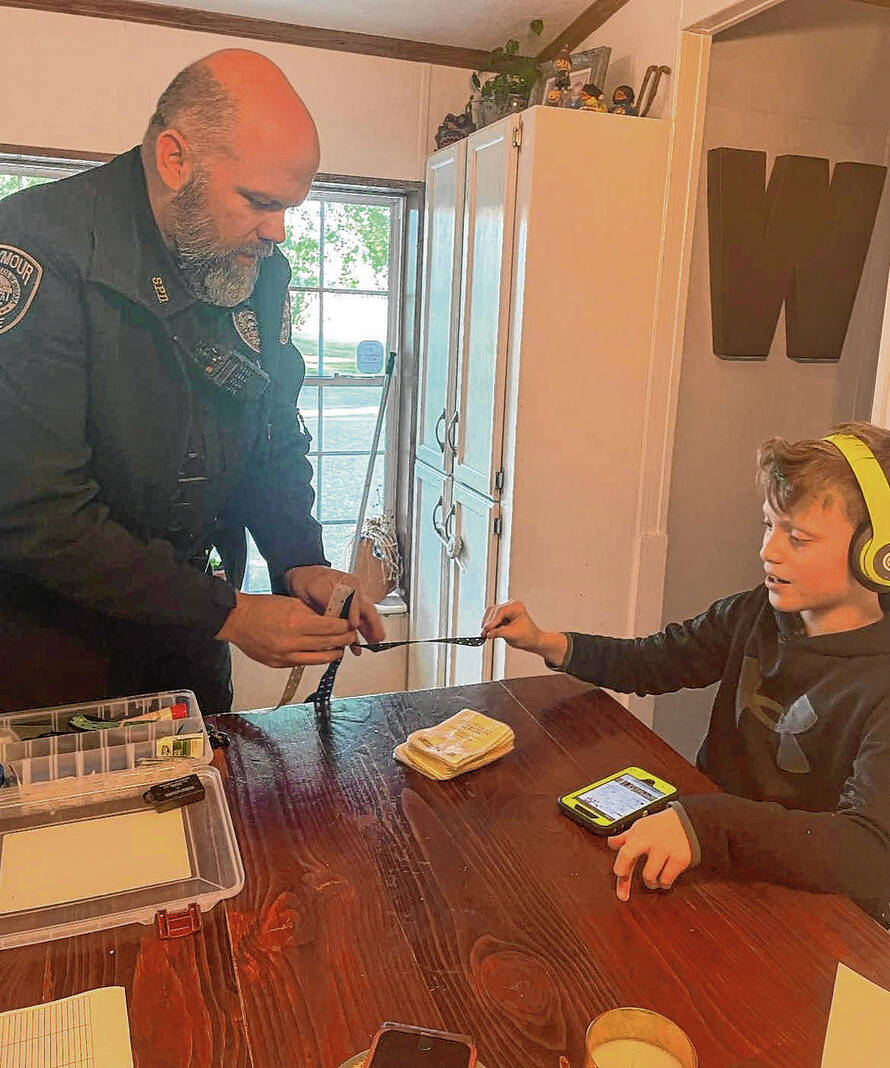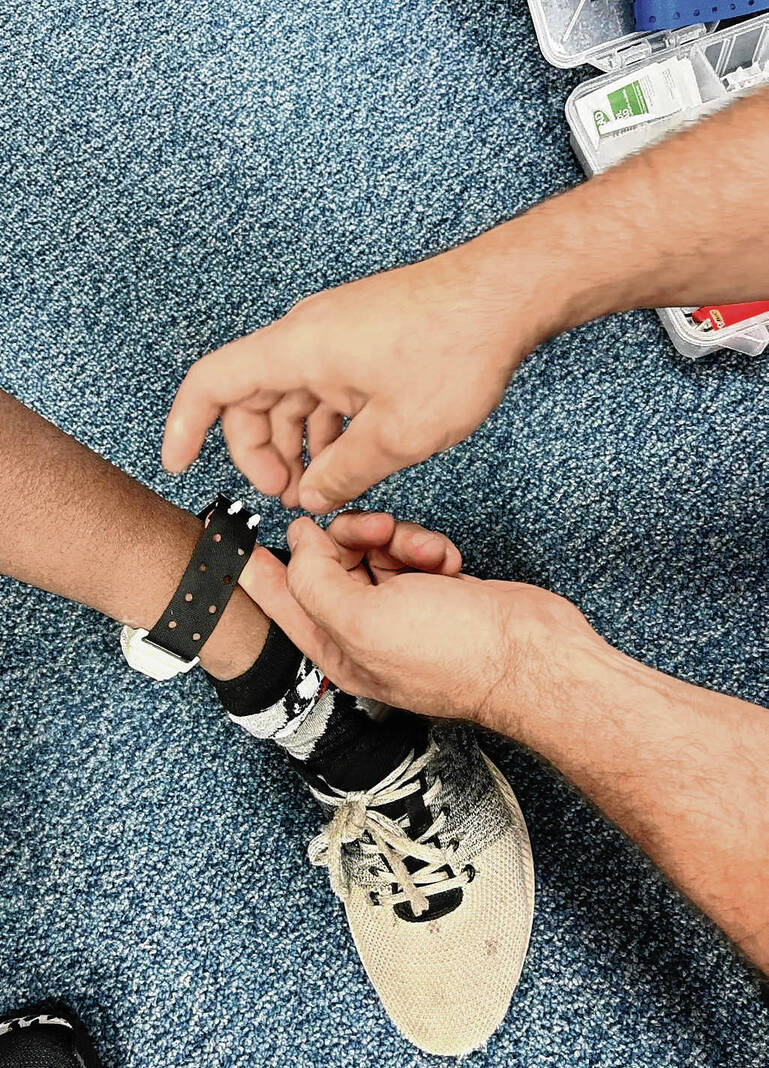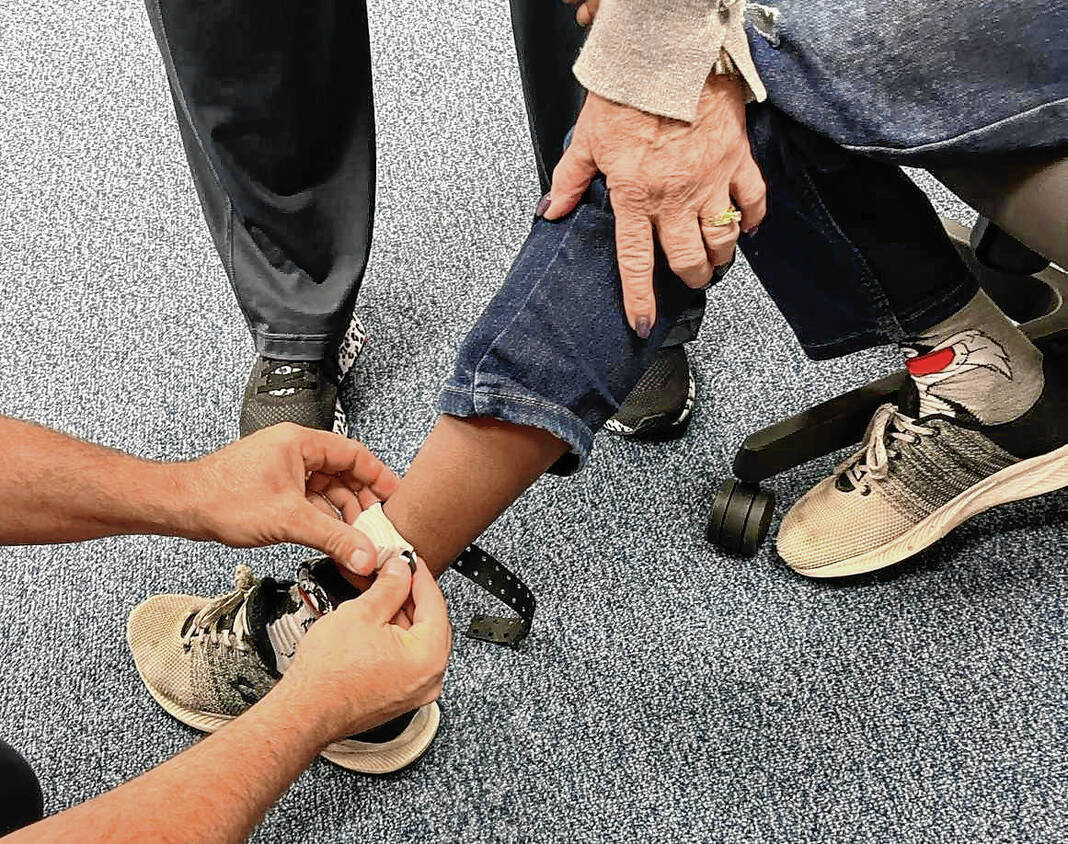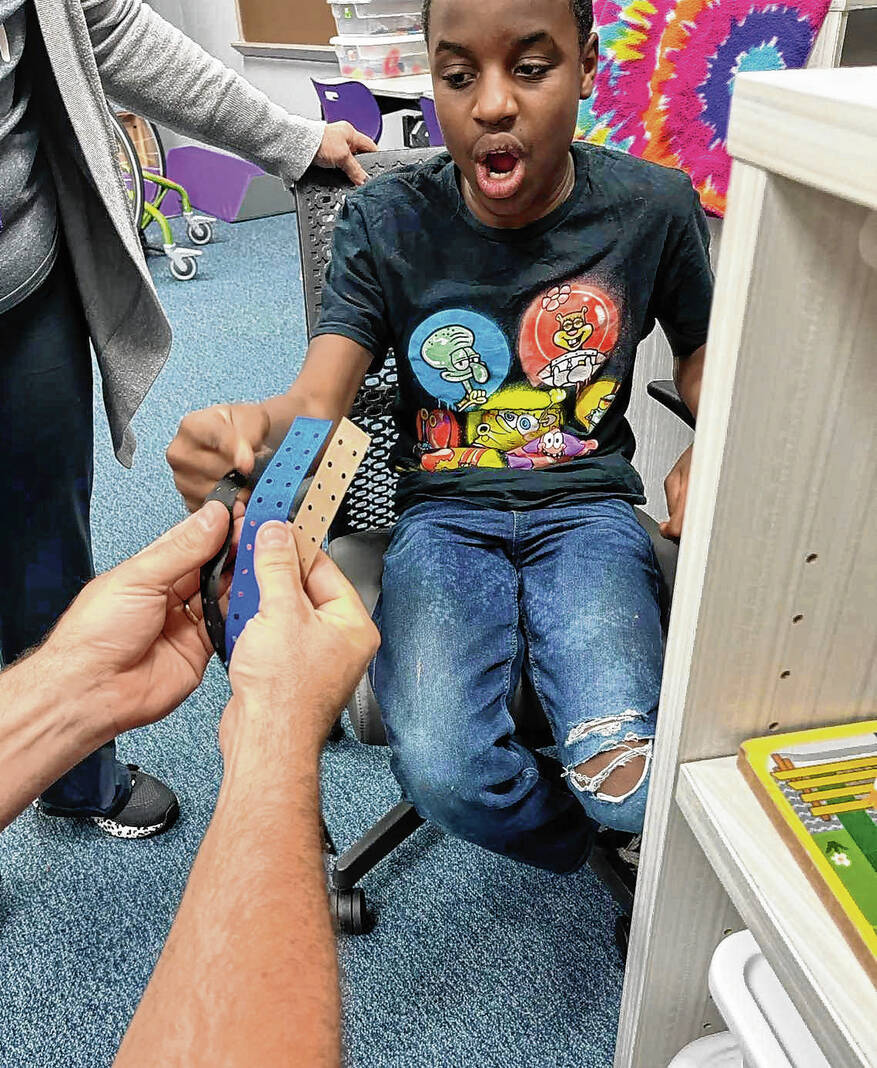Tayler Wiethoff is grateful for Project Lifesaver.
Since 2016, the Seymour Police Department has offered the public safety program designed to protect and locate missing people due to wandering. The mission is to use state-of-the-art technology in assisting those who care for people with Alzheimer’s disease, dementia, autism, Down syndrome and any other cognitive condition that causes wandering.
Wiethoff, who lives in Brownstown, has identical twin boys with autism. One is nonverbal. The other is semiverbal.
“We really, really, really appreciate this program because we know that it’s an immediate way to find them,” she said.
“We know that if anyone from the school or if ourselves call the police department, we have a piece of paper at our home with their location number. It can be typed in and located by GPS,” she said. “Especially where we live when we are around dense woods and bodies of water, we know that our kids will be found as quickly as possible. That’s a really huge comfort for us.”
Officer Jason Wynn visits the Wiethoff home every 60 days to check on the transmitter and batteries and also to see how the boys and their family are doing.
“I really appreciate the hands-on approach,” Wiethoff said. “Our kids are comfortable around officers because they have an officer at school, they have officers that come into our home, so that is something that is also another comfort for us, that we have people that are on the police force and the sheriff’s department that understand the differences in people on the spectrum and special needs.”
It’s all about making kids and adults feel safe and comfortable.
“It really is such a peace of mind, and it definitely makes us feel more comfortable knowing that there’s a secondary set of security,” Wiethoff said. “You do the best you can to keep them safe as parents, but it’s really nice to know that there’s an entire community, an entire system that’s backing you up.”
After the first year of the program at SPD, Officer Chadd Rogers said there were about 10 people involved in Project Lifesaver. By 2019, the number of clients had doubled, and earlier this year, it reached 30.
Currently, the officers have 26 clients, and there is availability for more if they fit the criteria.
“It’s steadily growing up, which is great,” Rogers said. “I see it as a good thing because we know these individuals are out there, so hopefully, the word is getting out there and they are using the resources now. The word is getting out, and we’re getting more people hooked up.”
The best part for parents and clients is there is no cost to participate. Fundraisers are conducted and donations are sought to take care of the expenses.
“We’ve received several donations that have helped fund the program, and as long as we can keep getting donations, then we’re going to keep the cost free,” Rogers said.
The initial cost of a transmitter is nearly $400, and every 60 days, an officer visits a client to change the battery and band. The devices have a five-year warranty.
When SPD started the program, Rogers said there was a grant he could apply for, but it was a difficult process. Fortunately, The Arc of Jackson County stepped up and helped with funding to keep the program going.
It cost around $15,000 to establish Project Lifesaver, and the annual fees for the batteries, bands and clips are around $1,000.
“We’ve not applied for grants recently,” Rogers said. “We’re going to be looking at starting a fundraiser, and we’re going to get some corporate sponsors or something along those lines.”
SPD tries to have one officer on each shift trained with the equipment. Currently, nine are trained.
Officers go through 16 hours of training to learn all about the transmitters and the receiver they use to find the transmitters if they are lost or the person wearing them wanders off.
Earlier this year, Rogers and Wynn completed their annual training at a conference. Every two years, they get recertified in tracking, and they are known as electronic search specialists.
“They update the technology quite often, make advancements, different transmitters, different receivers, so it’s good to know what’s out there and what is available,” Rogers said.
SPD’s current clients range in age from 3 to 70s. Wynn said the number of clients with Alzheimer’s is growing.
“That’s something we’re trying to get the word out more to those families that may not realize that there is a service or something that can help them, give them a little more peace of mind,” he said.
That peace of mind is the biggest benefit the officers hear from parents, guardians, spouses and caregivers.
“It gives them a chance not to really let their guard down but just to know if the child or adult did wander that there’s a team in place that’s ready to help them and can do so quickly,” Rogers said.
The officers like the regular interactions with their clients and families.
“I have several that I’ve kind of built a relationship that I don’t want to give to another officer,” Wynn said, smiling. “You’re there, they expect you and you try and keep that normalcy. It’s nice to help them keep that pattern or consistency with their routine because a lot of it is based on routine in their life, so I like helping that and that interaction with the kids.”
Even if a client reaches a point where they don’t need to be part of the program, the officers try to keep in touch with them.
“You kind of get mixed emotions when you have a kid go off the program because you become really close to them and you’re very happy that they can live a life where they don’t need this program, but then you miss going over and talking to them and visiting with the family. It’s kind of tough,” Rogers said.
As Rogers and Wynn approach retirement, they want to ensure donations continue to come in for the program so it can sustain for years to come.
For information about Project Lifesaver or to make a donation, call 812-522-1234 or email [email protected] or [email protected]. Checks should be made payable to Project Lifesaver.
“We just want to make sure that this program is established well enough that if for some reason, in four or five years, neither one of us is here because we’re retired that it’s easy for someone to take over and run with it,” Rogers said.

